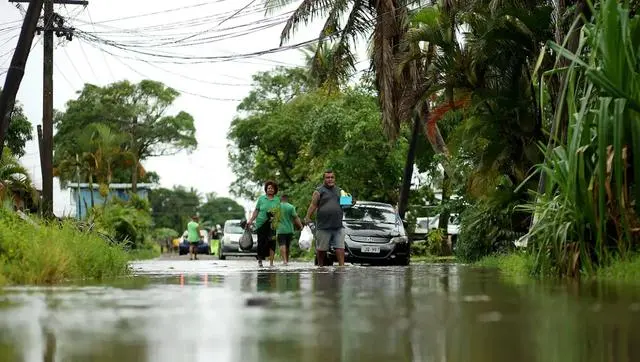From May 2 to 3, officials and representatives from dozens of countries gathered in Berlin, the capital of Germany, to hold an informal ministerial meeting of the "Petersburg Climate Dialogue". The meeting sets the agenda for the twenty-eighth Conference of the Parties to the United Nations Framework Convention on Climate Change (COP28), which will be held in the UAE this November.

But delegates remained divided on how to achieve global climate goals. The United Arab Emirates, the presidency of COP28, insists that traditional energy can continue to play a role in the future under the premise that oil and natural gas emissions are controlled. Some delegates called for a push to phase out fossil fuels.
COP28 presidency: Fossil fuels will still play a role
According to the Associated Press, the "Petersburg Climate Dialogue" informal ministerial meeting was held in Berlin from May 2 to 3, and was co-hosted by Germany and the United Arab Emirates, the host country of COP28. The Petersburg Climate Dialogue Informal Ministerial Meeting is an annual high-level political and international forum that sets the agenda for the annual UN Climate Change Conference. COP28 will be held in Dubai, UAE from November 30th to December 12th this year.
The Petersburg Climate Dialogue aims to strengthen communication on global energy transition and response to climate change. Key topics include climate change response, climate financing and dealing with climate loss. At the meeting, Germany called on governments around the world to work hard to set an ambitious target for renewable energy, but there were some differences among the participants on this target.
CNN reported that Sultan Jaber, chairman of COP28 and head of Abu Dhabi National Oil Company, identified priorities for global energy transformation at the meeting, including expanding the use of renewable energy by 2030, A doubling of hydrogen production and a call on rich countries to honor funding pledges for climate-vulnerable nations. But Jaber also made comments that moved climate activists into concern, saying fossil fuels would continue to play a role in meeting global energy needs for the foreseeable future. Jaber noted that the world needs to "accept some realities" and embrace an energy transition that includes "all energy".
Natural Resources and Commerce Minister Silk of the Pacific island nation of the Marshall Islands expressed concern at the meeting. Silke said his low-lying Pacific island nation was threatened by extreme weather from fossil fuel gas emissions. He called on governments to take concrete action to phase out fossil fuels and "stop the expansion of oil and gas".
Relevant sources pointed out that the technologies driving the transformation of fossil fuels have not been tested on a large scale. If you focus on such solutions, you may consume unnecessary funds. The solution should still be to use effective alternatives such as renewable energy. Issop, executive director of the environmental organization Climate Action Network, told CNN that as the representative of this year's COP28 presidency, Jaber's statement is "worrisome." "The plan to end fossil fuels should be at the core of the discussions and outcomes of COP28," she said.
Countries have differed in their stance on phasing out fossil fuels as they face opposition from developing countries with rich oil and gas reserves. At last year's COP27 in Egypt, dozens of countries agreed to phase out all fossil fuels, including coal, oil and natural gas. But Saudi Arabia and other fossil fuels producers have opposed it, fearing that the talks on climate change would "demonize" the fossil fuel industry. European countries agreed in March to promote the global phase-out of fossil fuels as a COP28 priority.